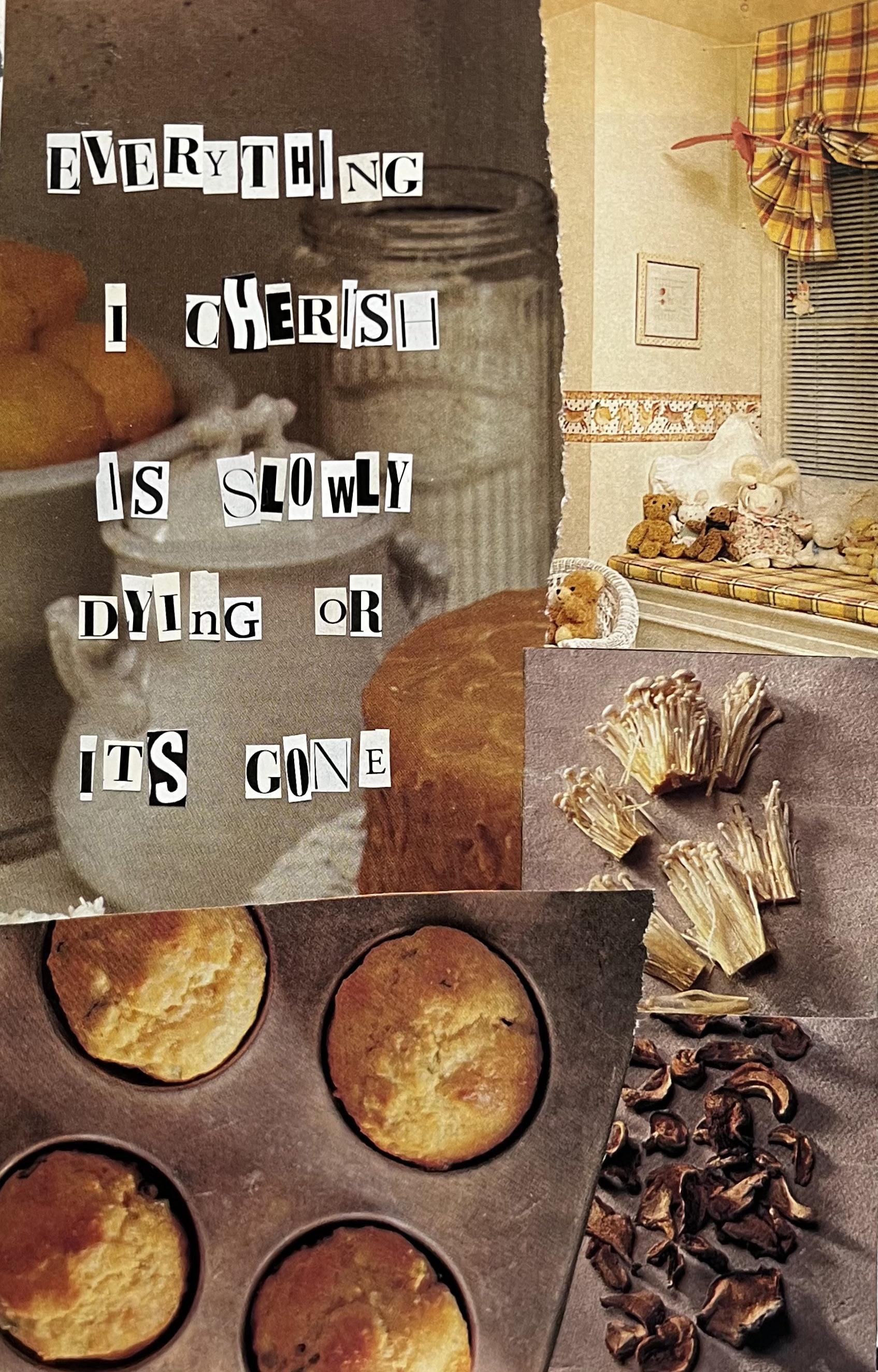
1 minute read
SOFIA ETTEMA
and hugs him tightly, calling him a comrade. As the middle-aged man steps forward to embrace the radical, a gunshot echoes within the office, causing the workers to instinctively cower. The mature man falls to the ground, dead. “When I said you can join, I wasn’t talking to you. You lived your entire life as an oppressor, and you can never come back from that.”
The Revolutionary raises his eyes toward the old man. Silence permeates the air. The eldest man locks his eyes on the radical’s, keeping his chin held high. The gun rises. I close my eyes. A gunshot rings out. My ears are throbbing, and I keep wishing for this to end. A second gunshot forces my eyes open in surprise. My shock triples as I watch two men fall to the ground. First is the old man. The second is Ivan. His face is set in permanent sadness. A brief moment of silence lingers on until the men start a chorus of war cries once again. They all storm out of the office, no doubt to stoke the flames of rebellion, leaving me behind to try and accept the death of my best friend. Time passes strangely on by me without any regard for my well-being. The city burns before my very eyes, and I don’t feel a thing. I had my eyes closed when the shot occurred, but now they feel forced open by the cold hands of regret. A creak of rusty hinges brings my focus back away from time. I turn slowly as if in physical pain (it felt as though this were true). The Revolutionary stands in the doorway with an expression almost like sadness. I don’t know what else to do. Hatred is present but is overwhelmed with a sense of helplessness. I decided to ask him his name. “My name is not important, comrade.” He pauses. “Come. The revolution is at hand. The exploited laborers shall rise and guide society toward equality. All of us are on level ground. No more factory floor… and no more metal balcony.”










